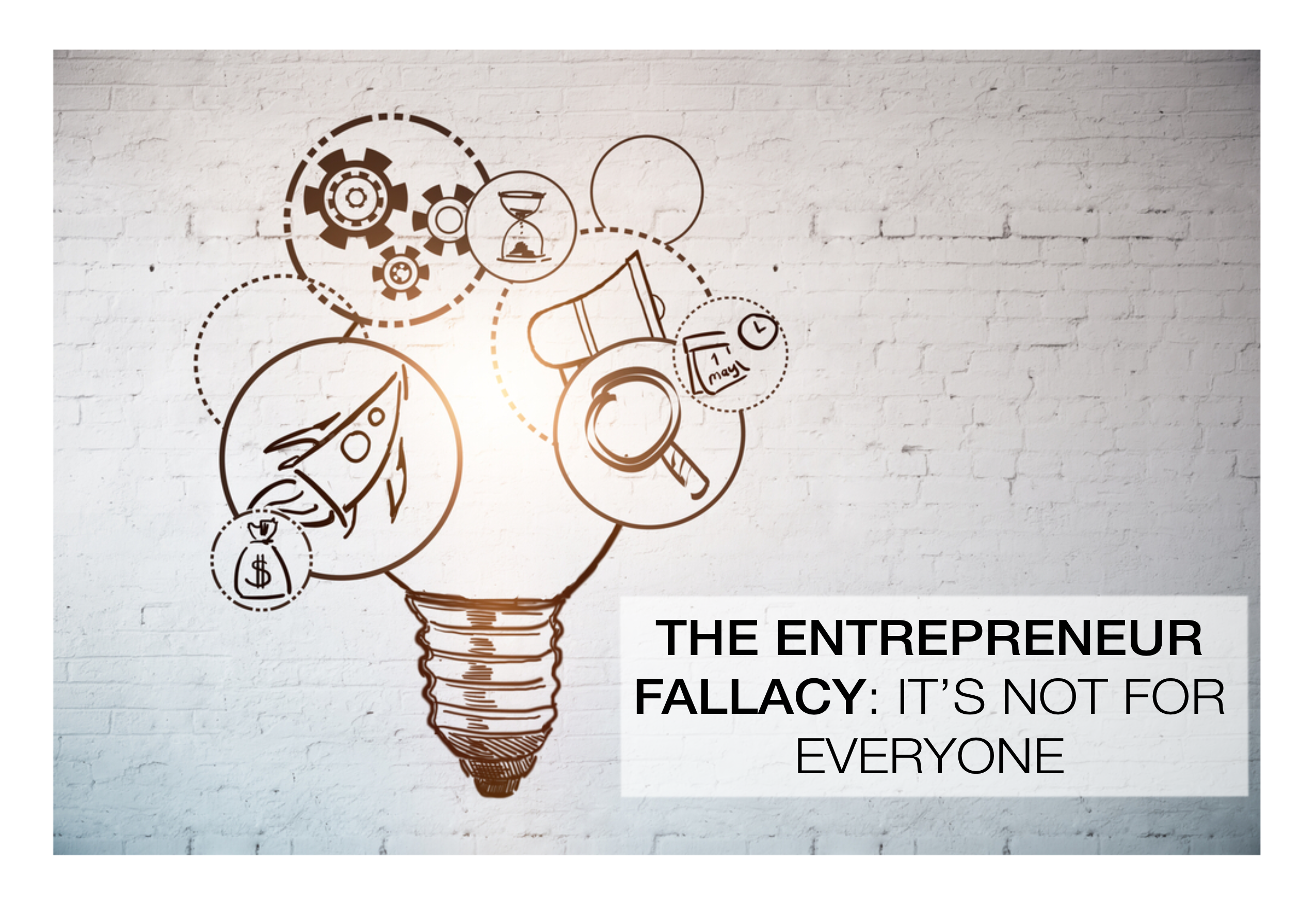If you’ve thought enough about starting your own business to read the magazines, web articles or blogs, you’ve no doubt come away with the impression that entrepreneurship is for anyone. All you need is an idea, some money, hard work and success will be yours.
Sorry to defy the wisdom of thousands of articles and dash the hopes of millions of readers, but that thinking is utter bunk. Yes, anyone can start a business, some people have easy access to funding. But being a successful entrepreneur is a completely different story.
The latest stats from the U.S. Bureau of Labor Statistics as parsed by LendingTree lays out a stark reality: 18.4% of U.S. private sector businesses fail within the first year. It rises to 49.7% after five years and 65.5% after 10 years. Every one of these businesses was launched by a so-called entrepreneur who dreamed of success.
What differentiates successful entrepreneurship from failure? For me, entrepreneurs are visionaries, disruptors. They make waves in their markets. They apply novel thinking to a sector or add novel products to tired categories. Think about Steve Jobs and Apple (the Apple Computer, the MacBook, the iPod and iTunes, and the iPhone); Jeff Bezos and Amazon (online retailing, Prime Video, television and movie production, and now healthcare); and Elon Musk (Tesla, SpaceX, Neuralink, The Boring Company, which is proposing a two-mile tunnel to the beach beneath Fort Lauderdale’s Las Olas Boulevard).
These men epitomize disruption. But their success isn’t defined by the billions of dollars and unbridled shareholder value they’ve delivered.
Your start-up can dream of being a five- or six-digit success, but if the innovation that drives it is fuelled with passion, commitment and vision to disrupt that made Bezos’, Jobs’ and Musk’s ventures household names, you’re no less an entrepreneur than they are.
To be clear, investors are not inherently entrepreneurs. The people who underwrite Formula 1 races or the Saudis who launched the new LIV Golf tour are not entrepreneurs, at least by virtue of those investments. The Winklevoss twins, who used their $65 million settlement with Facebook to bankroll other companies – and now reportedly have a net worth in the billions of dollars, are not entrepreneurs for the companies they backed. In my mind, they are financial backers, private equity investors or the money people.
Someone who creates a piece of technology for another application – such as an engineer who designs the camera technology that is then used in another company’s smartphone – is not a pure entrepreneur, but an inventor. But if that engineer commercialises that application and turns it into a business and does it again and again, to me, that is the epitome of an entrepreneur.
The Wharton School of Business at the University of Pennsylvania offers courses on start-ups and entrepreneurship. So does every major business school around the globe. Yet, parchment doesn’t create entrepreneurs.
Students cannot be turned into entrepreneurial risk-takers; “guts” isn’t learned in a classroom, but stripes can be earned by trial and failure, repeatedly. Students can be taught where to find financing or which chambers or groups to join. But they cannot be taught how to take calculated risks, have the stomach for it and then wash, rinse, repeat the process time and time again.
Can employees be entrepreneurs? Absolutely. When I was with JP Morgan, I was given a new territory and unleashed to grow it. I was an employee, but my entrepreneurial moxie turned my work into a multibillion-dollar book of business for my employer.
If you’re a risk taker who’s willing to put everything on the line, who finds success again and again – especially after failure, and especially with no family safety net beneath you – you’re likely an entrepreneur. If you are that safety net, the best thing you can do for your children is imbue in them that entrepreneurial spirit, that drive, that kill-to-eat belief. Many family fortunes have died at the hands of entitled and enabled offspring.
Have conversations with your kids. Encourage thoughtful, well-reasoned risk taking. If your kids have a great idea for a business, fan that flame. Tell them it’s OK to fail, only after they’ve taken their best shot. Ensure they write a thorough, well-researched business plan. Act as devil’s advocate, rather than the doting parent, and support their dreams. Back them, through introductions, connections, counsel, even financially – with limits such as an agreement to take a stake in their business or with an expectation of repayment.
In a world made better through innovation and entrepreneurship, you could be nurturing the next great mind or discovery. For any entrepreneur, that’s the proudest legacy of all.

Leave A Comment